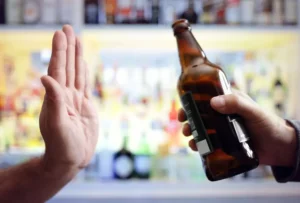
By the end of this first month, your recovery will be well underway, and your struggle with alcohol will begin to become more of a distant memory than a recent struggle. Alcohol might help you get to sleep faster, but it keeps you from reaching the what happens when you stop drinking alcohol deepest, most restorative stages of sleep. As you experience fatigue from the strain of withdrawal, you will likely begin to notice that the sleep you get is far more restorative and that you feel much better when you wake up in the morning.

Up your vitamin intake
In addition to the health benefits, when you stop drinking for any amount of time it automatically saves you money. “I would suggest cutting back on several things rather than completely eliminating to avoid feeling deprived, which can lead to rebound eating/drinking and weight regain,” she said. However, if you’re banking on a month-long break from alcohol to help you lose weight, Kumar said it’s not your best bet.

Better Heart Health
The effects of being well-hydrated will continue to build, having more positive results as you continue sobriety. A day and a half after quitting alcohol, withdrawal symptoms will intensify. New symptoms will develop, including clammy skin, nausea, jumpiness, insomnia, depression https://ecosoberhouse.com/ and loss of appetite. As new symptoms develop, they will become more and more intense as withdrawal progresses. You may still feel post-acute withdrawal symptoms like anxiety and fatigue. This is totally normal as your body adjusts to its new normal without alcohol.
- Healthcare providers typically prescribe short-term medications to relieve the symptoms of mild to moderate alcohol withdrawal.
- Withdrawal is different for everyone; there really is no “normal” and it can be hard to predict an individual person’s experience.
- While this is often a time people experience much higher quality sleep, it’s also common to have vivid dreams of drinking alcohol and wake up disoriented.
- Remove all alcohol from your home or ask a friend or family member to do it for you.
- People with alcohol use disorder should be monitored by a medical professional when withdrawing from alcohol.
Week one: Increased energy, reduced calories, better sleep
- However, try not to have too many firm expectations, as symptoms can continue for multiple weeks in some people.
- “Although no amount of alcohol is recommended, even cutting back on frequency or portion size can seriously help to reduce your cancer risk,” she says.
- Treatment for AUD often revolves around a plan that includes rehabilitation, care from addiction specialists and self-help programs such as Alcoholics Anonymous (AA).
Alcohol use disorder frequently occurs alongside other mental health conditions. Pre-existing mental health conditions can sometimes lead people to turn to alcohol to cope with their symptoms. In other cases, long-term alcohol exposure can increase a person’s risk of developing a psychiatric illness. That’s why many of us wonder if a month of avoiding drinking is enough to “reset” your liver back to normal.
- If you drink heavily for weeks, months, or years, you may have unwanted physical and mental symptoms when you try to stop.
- Go to the nearest emergency room or call 911 (or your local emergency service number) if you or a loved one has any concerning symptoms of alcohol withdrawal.
- It’s completely normal to feel a wide range of symptoms and emotions at the start of 30 days without alcohol.
If you add in costs of drinking in social settings at restaurants, bars, and clubs, the amount might be more. On the other hand, if you drink in moderation, alcohol doesn’t affect LDL and instead increases good cholesterol (HDL). Because the liver is a tolerant organ, he said positive changes can occur within weeks of going dry. If your liver has taken a hit from prolonged alcohol use, there are ways to give it — and the rest of your body — a break. Your liver has enzymes that work like special tools to help metabolize (break down) different toxins that enter your body, such as alcohol.

Does alcohol affect sleep?
- But a full detox is needed for the most benefit, and how much time that takes depends on a variety of personal factors.
- Keep in mind, though, that research on whether alcohol is a risk factor for weight gain is mixed.
- That’s also common, and a great topic to discuss in a support group.
- This can lead to symptoms including anxiety, insomnia and irritability, and in more serious cases, hallucinations, seizures and potentially death.
- Salicylic Acid is a BHA (Beta Hydroxy Acid) which controls sebum production and helps prevent breakouts.
- Heavy drinkers usually have tell-tale signs; they often look red-faced or puffy with bags under their eyes.
- Alcohol use disorder includes a level of drinking that’s sometimes called alcoholism.
How long until your liver detoxes from alcohol?
Treatment of Alcohol Withdrawal


Commentaires récents